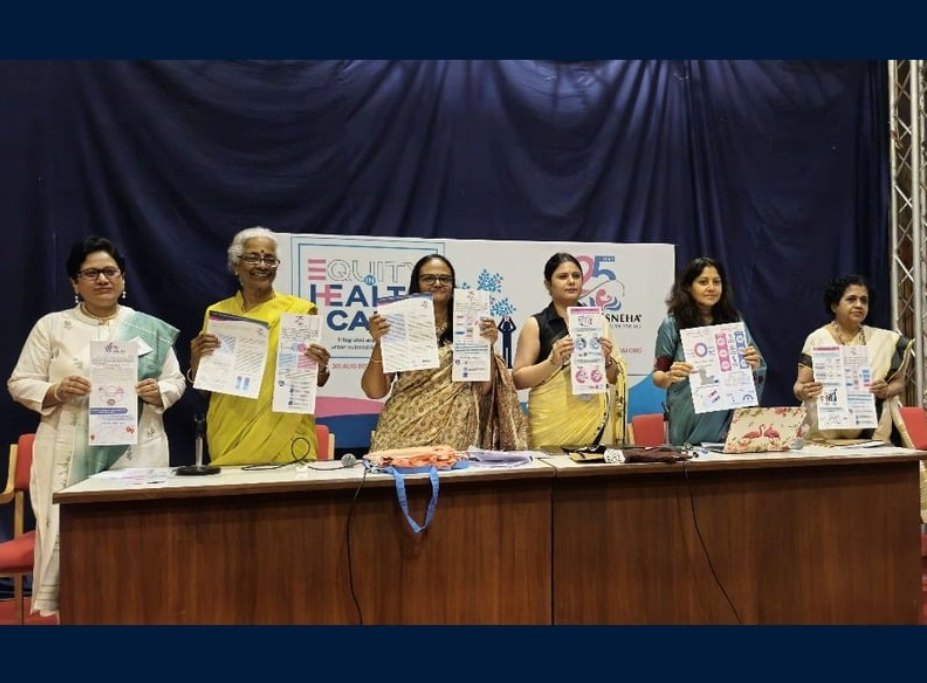Health and safety knowledge center aims at sharing of knowledge among six Indian states.

SNEHA, a 25-year-old NGO, has launched a health and safety knowledge center to share its expertise with organizations across India. The center will focus on social issues like maternal and child health, adolescent health, and prevention of violence.
The center will partner with NGOs, government, and academic institutes across six states, including Andhra Pradesh, Delhi, Jharkhand, Kerala, Rajasthan, and Uttar Pradesh. Sneha NGO plans to launch SNEHA’s Academy with certified courses to train and conduct workshops for staff of other NGOs and government bodies, sharing experiences from the past two decades. In the coming months, the NGO will also introduce certified courses focusing on key social issues through community-driven initiatives.
The NGO has released reports on key social issues like maternal and child health, adolescent well-being, and child safety. These reports, including the EHSAS and PVC Endline Reports, highlight efforts to address these issues in vulnerable urban communities.
Key highlights from the EHSAS Endline report (2021-23):
- 99 percent of adolescent girls were using hygienic methods of menstrual protection and 98 percent used soap and water to clean themselves during their period at endline
- Adequate dietary diversity among adolescents improved from 32 percent to 41 percent from baseline to endline
- Underweight among adolescents reduced from 34 to 31 percent from baseline to endline
- Knowledge about Anemia improved from 20 percent to 79 percent during the project cycle in the moderate and high categories
- Adolescents demonstrating moderate to high levels of knowledge about sexual and reproductive health improved from 16 percent to 84 percent during the project cycle.
- Adolescents exhibiting high gender equitable attitude improved from 52 percent to 72 percent
Key highlights from the PVC Endline survey report (2022-24):
- Parent child communication in terms of understanding worries and concerns of children improved from 62 percent to 77 percent
- Negative forms of disciplinary practices by parents in terms of physical punishment such as hitting on hands, legs and arms reduced from 77 percent to 58 percent
- However, psychological aggression in terms of Yelling/Shouting (88 percent) remained same during the project cycle
- Children’s and parents’ knowledge regarding where to report child protection cases and seek help improved over the project cycle. For children, the most substantial increase was observed in their awareness of the child helpline (1098), which surged from 23 percent at baseline to 56 percent at endline
Key highlights from maternal and child health intervention evaluation survey (2021-24):
- Stunting (a form of malnutrition indicating height as per the age of the child) in children under five years reduced from 34 percent to 30 percent
- Appropriate initiation of complementary feeding among children improved from 60 percent to 77 percent
- Dietary diversity in children aged 6 – 23 months increased from 24 percent to 35 percent
- Full immunization of children increased from 77 percent to 82 percent
- First trimester registration for antenatal care services increased from 48 percent to 58 percent Maternal anemia among pregnant women reduced from 43 percent to 39 percent
- Volunteers with adequate knowledge on maternal and child health topics rose from 16 percent to 56 percent
Vanessa D’Souza, CEO, SNEHA, said, “Our report findings represent concerns of communities living in Mumbai and similar issues faced by communities across the country. We aim to bridge the knowledge gap with the SNEHA Knowledge Center.”
Article Credit: healthcareradius